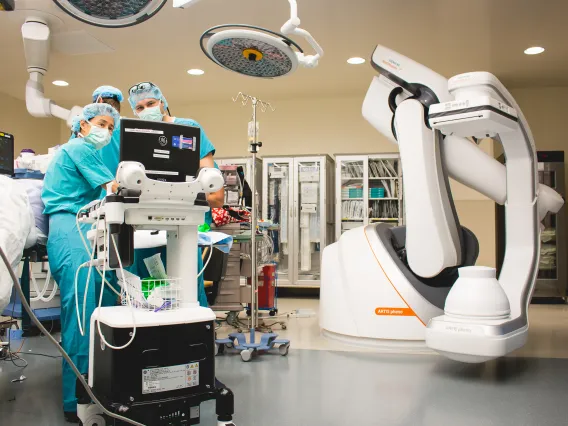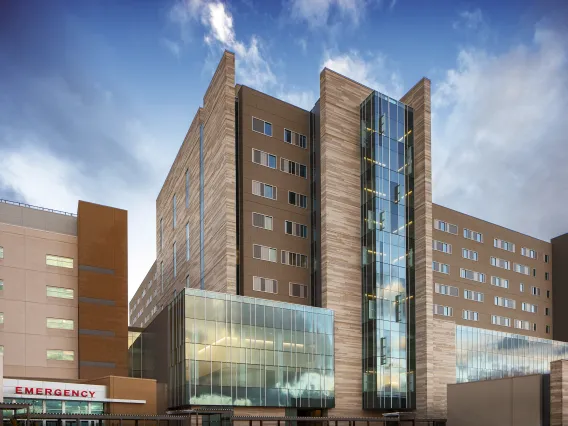Vascular Surgery Residency Program
Developing well-rounded physicians trained in all aspects of vascular surgery.
Program Overview
The major goal of our training program is to produce well-rounded vascular surgeons in all aspects of vascular surgery. To obtain this goal, our program provides incremental, progressive training in core surgery and vascular surgery during the five year program, focusing on areas that will be critically important to the needs of a practicing vascular specialist.
Our program offers a blend of university, private and VA settings to obtain comprehensive vascular surgery training. The diversity of the teaching faculty across these settings exposes the resident to a broad case mix. We have three teaching sites: Banner - University Medical Center Tucson; Tucson Medical Center, a community-based hospital; and the Southern Arizona VA Hospital.
A unique aspect of the University of Arizona Vascular Surgery Residency Program is our association with the Southern Arizona Limb Salvage Alliance (SALSA). SALSA is a collaborative clinical and research alliance dedicated to advancing care of the diabetic foot and preventing amputations in North America and worldwide.
Situated in the desert southwest, our program offers healthcare to a large Hispanic and Native American population. This underserved population can often suffer from healthcare disparities and, unfortunately, present with advanced vascular pathology. One of the unique aspects of the University of Arizona Vascular Surgery Residency Program is our association with the Southern Arizona Limb Salvage Alliance (SALSA). SALSA is a collaborative clinical and research alliance dedicated to advancing care of the diabetic foot and preventing amputations in North America and worldwide.
The vascular surgery integrated program will provide incremental, progressive training in core surgery and vascular surgery during the five-year program, focusing on areas that will be critically important to the needs of a practicing vascular specialist. Over the course of the five-year training period, vascular residents will spend a total of 18 months on core surgery rotations and 42 months on vascular surgery rotations. The unique aspects of the integrated training paradigm will allow us to incorporate elements of training in core surgical areas of importance that are critical to the development of a vascular specialist. These areas include concentrated surgical intensive care unit training and focuses exposure to general surgery (especially abdominal and trauma) over a four-year period as detailed in our rotation schedule. Trainees will undertake core rotations in plastic surgery, orthopedic surgery, general and oncologic surgery, and be provided with major exposure to trauma surgery and critical care, transplant surgery, along with senior resident level rotations on transplant surgery. These core surgical areas will be emphasized in the first two years of training, and reinforced by means of targeted rotations in the third and fourth years.
In addition, our ICAVL accredited Non-Invasive Vascular Laboratory is located in the outpatient clinic. Upon completion of our program, vascular residents will be able to demonstrate the ability to accurately interpret non-invasive laboratory studies. This experience includes the range and number of non-invasive studies to allow a vascular resident graduate to sit for the Registered Physician in Vascular Interpretation (RPVI) certification.

Vascular and Endovascular Surgery
Learn more about the Department of Surgery's Division of Vascular and Endovascular Surgery at the University of Arizona

Clinical Sites
Our teaching locations include Banner – University Medical Center Tucson, our primary teaching hospital; Tucson Medical Center, a community-based hospital; Southern Arizona Veterans Affairs Hospital; and other community sites.
How to Apply
Learn more about what you need to do to meet the application requirements for our vascular surgery residency program.

